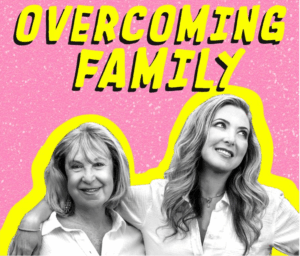Finding Your Voice After Toxic Parents Is Possible And Necessary
Finding your voice after toxic parents can feel nearly impossible when you’ve grown up in a household where speaking up wasn’t safe, respected, or even allowed. Toxic or dysfunctional parents—whether they were controlling, emotionally unavailable, or caught in cycles of addiction—can leave lasting imprints on how you see yourself and how you express your needs. But here’s the good news: it’s never too late to reclaim your voice. With awareness and practice, you can learn to speak your truth with confidence and compassion.
Why Toxic or Dysfunctional Parenting Silences Us
Children raised in toxic or dysfunctional family environments often learn survival strategies that keep them small and quiet. You may have been told directly—or indirectly—that your feelings didn’t matter, that your needs were a burden, or that conflict was dangerous. Consider that a given with any toxic parents but the problem is it can cause issues in your life today. That’s why finding your voice after toxic parents is so critical to adult success.
Over time, the silencing of toxic parents can create habits like:
-
Avoiding speaking up for fear of rejection or punishment
-
Feeling guilt or shame when setting boundaries
-
Struggling to identify what you really think or want
-
Relying on people-pleasing to keep the peace
These patterns might have kept you safe as a child—but as an adult, they hold you back from authentic connection and self-respect.
Steps to Help Finding Your Voice After Toxic Parents
Remember, there’s no timeline for this. Give yourself a lot of credit for having the awareness to get here. There are so many ways to begin finding your voice after toxic parents. I began with my own recovery and got sober. From there, I had therapy, read books, had coaching, and did whatever the professionals told me to. With time, new learned tools, and experience, I did find my voice. Find what works for you in terms of self-help, therapy, and coaching. In the meantime, try some of these.
Reclaiming your voice is not about confrontation—it’s about learning to honor yourself. Here are some steps that can help:
1. Acknowledge the Silence
Admit to yourself that you learned to stay quiet out of survival. Recognizing this isn’t weakness—it’s strength. It means you can finally begin to change it.
2. Get Clear on Your Values
What matters most to you now? Honesty? Respect? Freedom? When you know your values, it’s easier to speak from a place of truth rather than fear.
3. Start Small With Safe People
Practice expressing yourself in low-stakes situations. Share your opinion with a trusted friend or write down your feelings in a journal. Each small step builds confidence.
4. Learn the Language of Boundaries
Phrases like “I’m not comfortable with that” or “I need time to think” are simple ways to protect your peace without overexplaining. Boundaries aren’t walls—they’re doors with handles only you control.
5. Replace Guilt With Self-Compassion
Every time you hear that voice in your head saying “you’re selfish” or “you don’t deserve this,” pause and remind yourself: “My needs are valid. My voice matters.”
6. Seek Support
Therapy, support groups, or guided workbooks can provide tools and community. Healing from family dysfunction doesn’t have to be a solo journey.
The Freedom of Speaking Your Truth
When you find your voice after years of silence, something powerful happens. You stop living only for others’ approval and start living in alignment with your authentic self. Relationships become healthier, your self-esteem grows, and you finally feel the freedom to be heard.
It’s not about shouting to the world—it’s about no longer whispering to yourself.
Remember: Finding your voice is a process, not a single event. Every step you take toward speaking honestly and respectfully is a step toward breaking free from the patterns of dysfunction and creating the life you deserve.
CHECK OUT MY NEW RADIO SHOW OVERCOMING FAMILY
CHECK OUT MY BOOK
Follow us onInstagram
Like us on Facebook
Comment on our posts
More Articles To Read
Mother-Daughter Relationship Assessment: Take The Quiz
Dealing With Addiction Issues: Why You Should Go To A Rehab
Why Everyone Need 100 Tips For Growing Up
New Alcohol Facts: Even A Little Can Hurt























